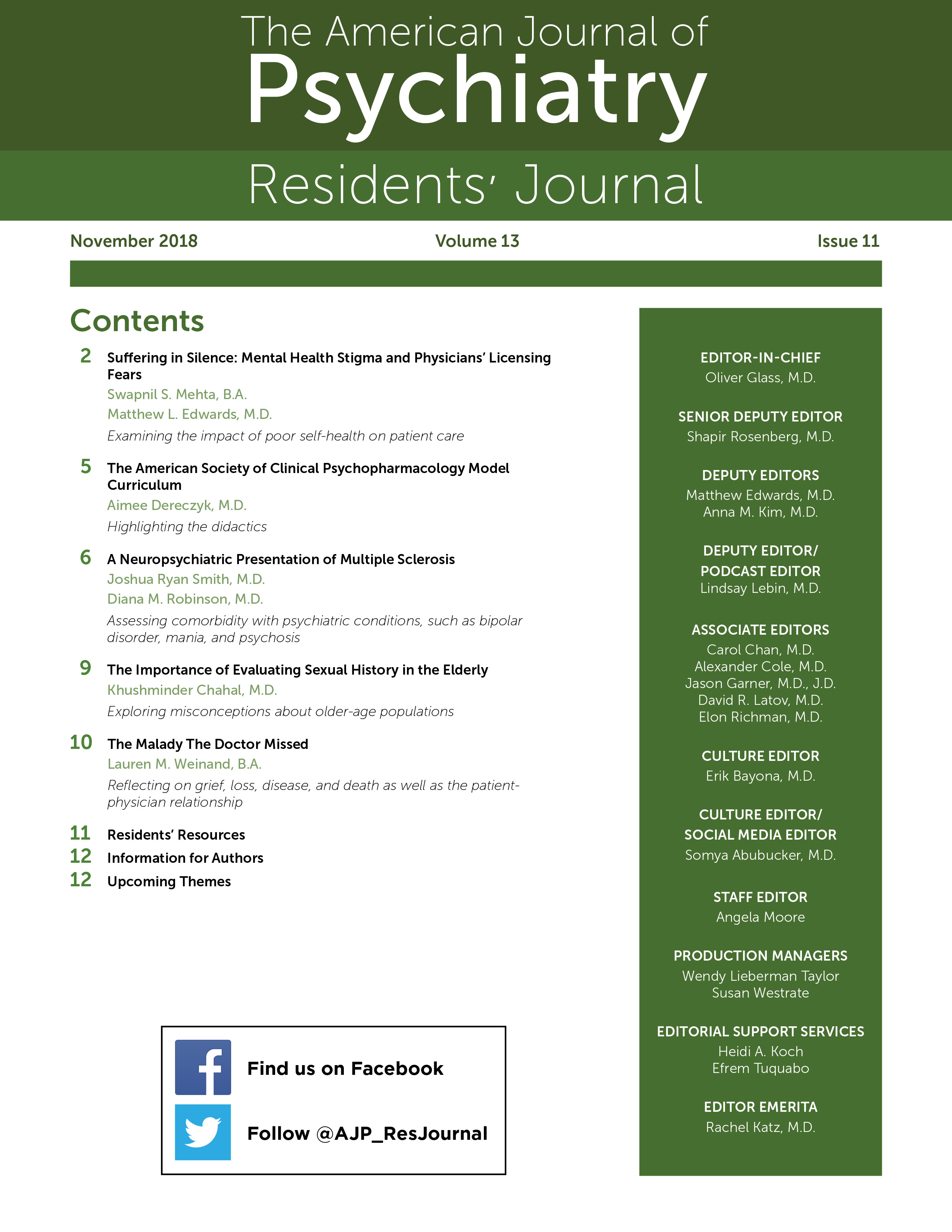Physicians are encouraged to practice medicine from a biopsychosocial approach. This allows understanding beyond just that of pathophysiology. Of the social elements of a patient's history, sexual history is an important topic. It provides insight into the possible risk factors for disease. And psychiatrists can better diagnose the mental health disorders associated with such diseases.
Sexual histories are often omitted in psychiatric assessments of the elderly (
1). Misconceptions about sexuality in old age play a role. It is often accepted that the elderly are asexual. This may result from lack of data regarding sexuality in this population until just this past decade. The National Social Life, Health and Aging Project began in 2005 and 2006 and was the first nationally representative survey of an older population (aged 57–85). Next, in 2009 the National Survey of Sexual Health and Behavior gathered data on individuals ≤94 years old. These two surveys have provided tremendous insights into the sexual behaviors among older adults.
Vaginal intercourse remains one of the most highly practiced behaviors in old age (
2). In a survey conducted by Schick et al. (
3), two-thirds of individuals over age 50 reported having vaginal intercourse a few times per month or more frequently. Most reported that their last sexual partner was a relationship partner; however, a substantial minority reported having sex with a friend or new acquaintance or with someone hired for sex. Only about 20% of men and 24% of women reported condom use during their last sexual encounter. These data indicate that older individuals are a high-risk group regarding sexual behaviors.
Given the low rate of condom use reported in this population, physicians need to be mindful of the high probability for sexually transmitted infections. Additionally, it is common for older adults to have new sexual partners, as a result of divorce or the death or serious illness of a spouse or partner. And even though pregnancy may not be a concern in this age group, infection is. In 2013, the Centers for Disease Control and Prevention reported that adults ≥55 years old accounted for 26% of the 1.2 million people living with HIV (
4). A portion of this patient population represented newly acquired HIV infections. The implications of sexual infections in older adults are enormous, given the high likelihood of comorbid diagnoses and decreased ability to tolerate disease and medications.
Although sexually transmitted infections can threaten the mental stability of patients of all ages, such infections may be particularly damaging in the elderly. Depressive disorders are difficult to diagnose in this population, owing to variability in their presentation (
5). Taking a thorough sexual history may uncover such disorders, especially if related to infectious disease diagnoses.
The sexual lives of the elderly are being lengthened due to the introduction of sildenafil, lubricants, and other aids. The myth that older adults do not engage in sex must be challenged by psychiatrists. Doing so will allow psychiatrists to uncover illnesses in this high-risk group and will provide diagnostic clarity into disorders that may be otherwise difficult to diagnose in this age group.
